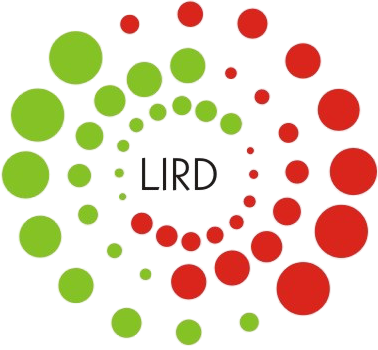Publications
- Home
- Publications
Journal of Human Genetics
Mittal, Kirti, et al. “Mutations in the genes for thyroglobulin and thyroid peroxidase cause thyroid dyshormonogenesis and autosomal-recessive intellectual disability.” Journal of human genetics 61.10 (2016): 867-872.
https://pubmed.ncbi.nlm.nih.gov/27305979/
Psychiatric Morbidity & Domestic Violence
Sawal, Humaira Aziz, et al. “Three Mutations in the Bilateral Frontoparietal Polymicrogyria Gene GPR56 in Pakistani Intellectual Disability Families.” Journal of pediatric genetics 7.02 (2018): 060-066.
https://www.ncbi.nlm.nih.gov/pmc/articles/
PMC5916802/
The American Journal of Human Genetics
Mir, Asif, et al. “Identification of mutations in TRAPPC9, which encodes the NIK-and IKK-β-binding protein, in nonsyndromic autosomal-recessive mental retardation.” The American Journal of Human Genetics 85.6 (2009): 909-915.
https://linkinghub.elsevier.com/retrieve/pii/S0002-9297(09)00524-2
Social Psychiatry and Psychiatric Epidemiology
Ayub, Muhammad, et al. “Psychiatric morbidity and domestic violence: a survey of married women in Lahore.” Social Psychiatry and Psychiatric Epidemiology 44.11 (2009): 953.
https://link.springer.com/article/10.1007/s00127-009-0016-6
Journal of Affective Disorders
Naeem, Farooq, et al. “Prevalence and psychosocial risk factors of PTSD: 18 months after Kashmir earthquake in Pakistan.” Journal of affective disorders 130.1-2 (2011): 268-274.
https://pubmed.ncbi.nlm.nih.gov/21071091/
Human Mutation
Sheikh, Taimoor I., et al. “MeCP2 AT‐Hook1 mutations in patients with intellectual disability and/or schizophrenia disrupt DNA binding and chromatin compaction in vitro.” Human Mutation 39.5 (2018): 717-728.
https://pubmed.ncbi.nlm.nih.gov/29431277/
Human Molecular Genetics
Ahmed, Iltaf, et al. “Mutations in DCPS and EDC3 in autosomal recessive intellectual disability indicate a crucial role for mRNA decapping in neurodevelopment.” Human molecular genetics 24.11 (2015): 3172-3180.
https://pubmed.ncbi.nlm.nih.gov/25701870/
Human Molecular Genetics
Bernkopf, Marie, et al. “Disruption of the methyltransferase-like 23 gene METTL23 causes mild autosomal recessive intellectual disability.” Human molecular genetics 23.15 (2014): 4015-4023.
https://pubmed.ncbi.nlm.nih.gov/24626631/
International Journal of Mental Health Systems
Naeem, Farooq, et al. “Psychologists experience of cognitive behaviour therapy in a developing country: a qualitative study from Pakistan.” International journal of mental health systems 4.1 (2010): 1-9.
https://pubmed.ncbi.nlm.nih.gov/20181039/
The American Journal of Human Genetics
Law, Rosalind, et al. “Biallelic truncating mutations in FMN2, encoding the actin-regulatory protein Formin 2, cause nonsyndromic autosomal-recessive intellectual disability.” The American Journal of Human Genetics 95.6 (2014): 721-728.
https://pubmed.ncbi.nlm.nih.gov/25480035/
BMC Medical Genetics
Rafiq, Muhammad Arshad, et al. “Novel VPS13B mutations in three large Pakistani Cohen syndrome families suggests a Baloch variant with autistic-like features.” BMC medical genetics 16.1 (2015): 41.
https://pubmed.ncbi.nlm.nih.gov/26104215/
Journal of Human Genetics
Mittal, Kirti, et al. “Mutations in the genes for thyroglobulin and thyroid peroxidase cause thyroid dyshormonogenesis and autosomal-recessive intellectual disability.” Journal of human genetics 61.10 (2016): 867-872.
https://pubmed.ncbi.nlm.nih.gov/27305979/
Psychiatric Morbidity & Domestic Violence
Sawal, Humaira Aziz, et al. “Three Mutations in the Bilateral Frontoparietal Polymicrogyria Gene GPR56 in Pakistani Intellectual Disability Families.” Journal of pediatric genetics 7.02 (2018): 060-066.
https://www.ncbi.nlm.nih.gov/pmc/articles/PMC5916802/
The American Journal of Human Genetics
Mir, Asif, et al. “Identification of mutations in TRAPPC9, which encodes the NIK-and IKK-β-binding protein, in nonsyndromic autosomal-recessive mental retardation.” The American Journal of Human Genetics 85.6 (2009): 909-915.
https://linkinghub.elsevier.com/retrieve/pii/S0002-9297(09)00524-2
Social Psychiatry and Psychiatric Epidemiology
Ayub, Muhammad, et al. “Psychiatric morbidity and domestic violence: a survey of married women in Lahore.” Social Psychiatry and Psychiatric Epidemiology 44.11 (2009): 953.
https://link.springer.com/article/10.1007/s00127-009-0016-6
Journal of Affective Disorders
Naeem, Farooq, et al. “Prevalence and psychosocial risk factors of PTSD: 18 months after Kashmir earthquake in Pakistan.” Journal of affective disorders 130.1-2 (2011): 268-274.
https://pubmed.ncbi.nlm.nih.gov/21071091/
Human Mutation
Sheikh, Taimoor I., et al. “MeCP2 AT‐Hook1 mutations in patients with intellectual disability and/or schizophrenia disrupt DNA binding and chromatin compaction in vitro.” Human Mutation 39.5 (2018): 717-728.
https://pubmed.ncbi.nlm.nih.gov/29431277/
Human Molecular Genetics
Ahmed, Iltaf, et al. “Mutations in DCPS and EDC3 in autosomal recessive intellectual disability indicate a crucial role for mRNA decapping in neurodevelopment.” Human molecular genetics 24.11 (2015): 3172-3180.
https://pubmed.ncbi.nlm.nih.gov/25701870/
Human Molecular Genetics
Bernkopf, Marie, et al. “Disruption of the methyltransferase-like 23 gene METTL23 causes mild autosomal recessive intellectual disability.” Human molecular genetics 23.15 (2014): 4015-4023.
https://pubmed.ncbi.nlm.nih.gov/24626631/
International Journal of Mental Health Systems
Naeem, Farooq, et al. “Psychologists experience of cognitive behaviour therapy in a developing country: a qualitative study from Pakistan.” International journal of mental health systems 4.1 (2010): 1-9.
https://pubmed.ncbi.nlm.nih.gov/20181039/
The American Journal of Human Genetics
Law, Rosalind, et al. “Biallelic truncating mutations in FMN2, encoding the actin-regulatory protein Formin 2, cause nonsyndromic autosomal-recessive intellectual disability.” The American Journal of Human Genetics 95.6 (2014): 721-728.
https://pubmed.ncbi.nlm.nih.gov/25480035/
BMC Medical Genetics
Rafiq, Muhammad Arshad, et al. “Novel VPS13B mutations in three large Pakistani Cohen syndrome families suggests a Baloch variant with autistic-like features.” BMC medical genetics 16.1 (2015): 41.
https://pubmed.ncbi.nlm.nih.gov/26104215/
-
Head Office
-
Call Us
-
Feel free to message us!
Contact Us
We aim to enhance the research capacity of Pakistani institutions through training and collaborations.
